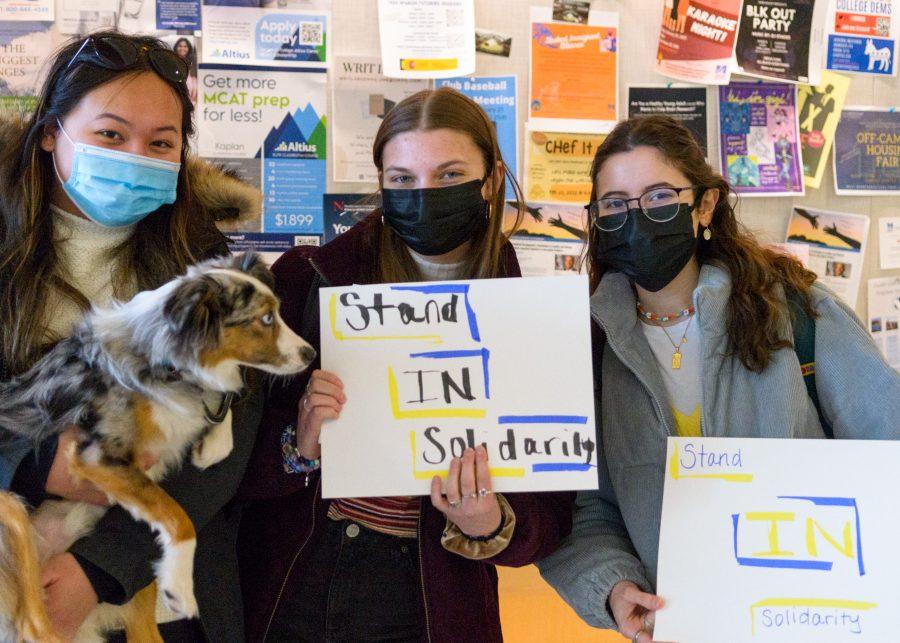On Sunday, Feb. 27, thousands of demonstrators gathered in the Boston Public Garden to show their support for Ukraine in the midst of Russian invasion.
The demonstration began in the Boston Public Garden at 1 p.m. The group of demonstrators moved through the streets towards Boston Common, and even marched down Newbury Street.
Demonstrators chanted “no war,” “hands off Ukraine” and “stop the war.” That day, Vladimir Putin had ordered that Russian nuclear forces “be put on high alert,” per NBC 10 Boston.
Boston 25 News spoke to several individuals with family in Ukraine or other connections to the nation.
“Everyone in Ukraine was scared of exactly this happening eight years ago,” said Iryna Soloviova, a student at Northeastern University who came to the U.S. from Ukraine four years ago. “They’re bombing my grandparent’s city right now.”
“There are no Nazis in Ukraine,” said Dmitriy Sokolovskiy, an immigrant from Ukraine who became a U.S. citizen more than 25 years ago. “There are Jewish fighters all over that are fighting for Ukraine right now. The [Russian] families who think their loved ones are on exercises? They’re not. They’re being killed by the actions of their so-called president.”
WBUR spoke with Kirill Shklovsky, a resident of Dorchester who was born in Russia, regarding his thoughts about the war.
“Unlike other tragedies that have unfolded around the world, this one particularly hits home, because nobody wants this war except for Putin and his few allies. It’s very sad,” said Shklovsky.
“I just hope that people send support, whether it’s prayers, [financial support] or just solidarity, because it’s important for the whole world to see what is happening,” Hanna Melnyczuk—an individual with family who lives in Ukraine—told NBC 10 Boston. “It’s a travesty.”
GBH spoke with Danyl Levytskyi, a 17-year-old resident of Salem, Mass. who moved from Kyiv, Ukraine roughly a year and a half ago.
“I haven’t been sleeping very well in the past couple of months,” said Levytskyi. “It’s just hard. Especially being a junior in high school and trying to catch up with school work and everything else, it’s hard.”
Levytskyi also provided some advice for what he believes Americans can do to help Ukranians.
“The easiest thing that you can do is donate to [the] Ukrainian military,” said Levytskyi. “I believe that’s the most effective way to help [the] Ukrainian military and Ukrainian government because, even though we’re receiving support from NATO and [the] United States and other countries and [the] European Union, it’s still not enough.”
There are many organizations to which Americans who wish to demonstrate their support for Ukraine can donate. National Public Radio compiled the following list: UNICEF, Doctors Without Borders, Voices of Children, Sunflower of Peace, International Committee of the Red Cross, Save the Children, U.N. Refugee Agency, CARE and International Medical Corps. Additionally, GBH reports that St. Andrew Ukrainian Orthodox Church in Jamaica Plain is “acting as a drop point for medical items to be shipped to Ukraine.”
At the time of writing, the gathering on Sunday, Feb. 27, is Boston’s largest gathering of support for Ukraine. That Saturday, a demonstration was held in Cambridge and attended by MIT and Harvard students. Additionally, a candle-lit vigil in Concord was attended by 150 Ukrainian-Americans, those with ties to Ukraine and anti-war protestors on Sunday.

